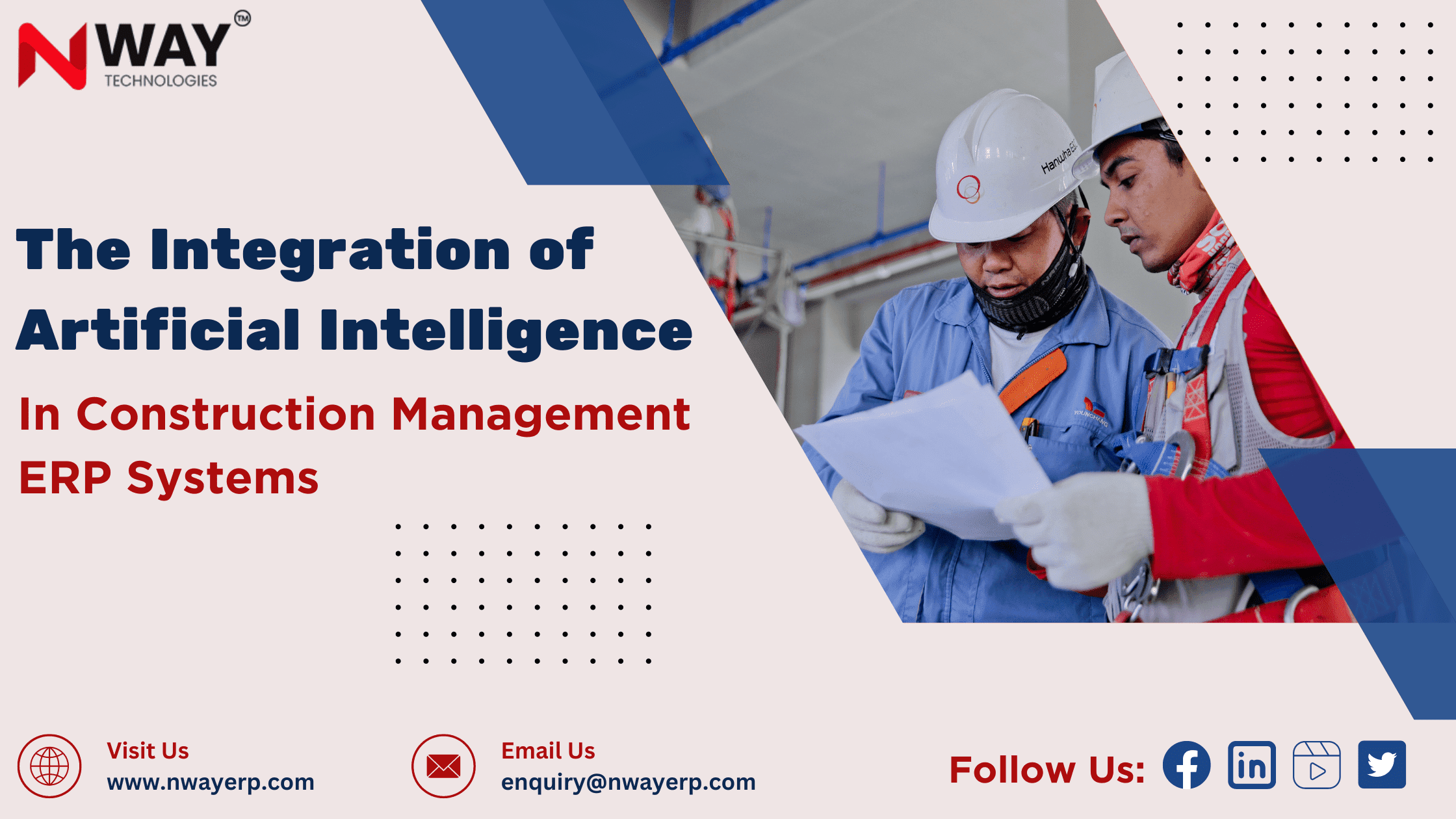In the rapidly changing landscape of the construction industry, where innovation is critical, integrating technological advances has become essential to ensure efficient project delivery. One of the most disruptive trends in this industry is the convergence of artificial intelligence (AI) and enterprise resource planning (ERP) systems. Integrating AI into ERP systems can transform construction project management practices, revolutionize decision-making, and alleviate challenges as construction projects become complex. This comprehensive investigation examines the complex interplay of AI and ERP systems for construction management. It reveals the profound impact this synergy has on the construction industry.
The Development of ERP Systems in Construction Management
ERP systems (Enterprise Resource Planning) have been the most essential tools for managing construction projects for decades. These systems streamlined and integrated various aspects of project operations, from resource allocation and budget tracking to sourcing, scheduling, and communicating with stakeholders. ERP systems have greatly improved project workflows by providing real-time visibility and facilitating effective collaboration. However, the need for more advanced and innovative solutions becomes apparent as construction projects become more complex.
The Rise and Role of Artificial Intelligence
Artificial Intelligence (AI) is a transformative force across all industries, redefining how we solve problems and optimize processes. In the construction industry, AI encompasses technologies that enable machines to perform tasks that typically require human intelligence, such as experience-based learning, pattern recognition, and informed decision-making. The construction industry will benefit significantly from AI capabilities, including predictive analytics, data-driven decision-making, and pattern recognition.
Integration Benefits: Improving Building ERP Systems with AI
Integrating AI with building management ERP systems offers several benefits:
Predictive Analytics: Construction ERP systems AI can use historical design data to predict future trends and potential challenges. With these forecasts, construction professionals can anticipate setbacks such as delays or budget overruns and take proactive actions to address them.
Advanced Risk Management: By assessing various risk factors and their potential impact on construction project planning and budgeting, AI helps project managers develop comprehensive contingency plans. This proactive approach minimizes potential disruptions.
Optimized Resource Allocation: AI-powered ERP systems analyze project requirements, resource availability, and historical usage data to optimize resource allocation. It ensures efficient use of resources, reduces waste and improves overall productivity.
Precision Planning: AI-powered ERP systems streamline project planning by accounting for complex weather conditions, resource availability, and task dependencies. This dynamic scheduling minimizes latency and maximizes performance.
Simplified Supply Chain Management: The predictive capabilities of artificial intelligence improve supply chain management by predicting material requirements, monitoring supplier performance, and identifying potential disruptions before they occur.
Accurate Cost Estimation: AI-powered ERP systems refine cost estimation processes by considering historical data and hidden cost drivers, resulting in more accurate budget forecasts.
Real-time Quality Control: AI can analyze data from sensors and monitors in real-time to identify potential quality deviations, ensure project standards are met, and improve the overall quality of the project.
Automated Reporting: AI-equipped ERPs generate automated reports on project progress, budget updates, risk assessments, etc. It enables project managers to make well-informed decisions promptly.
Challenges and Considerations
Integrating AI into ERP systems in construction presents numerous challenges that must be carefully considered, including data quality and integration, change management, skills gaps, upfront investments, ethical issues, and confidentiality. As with any technology integration, integrating AI into building ERP systems poses some challenges that need to be carefully considered:
Data Quality and Integration
The accuracy of AI-powered information depends on integrating high-quality data from various sources into the ERP system.
Change Management
Introducing artificial intelligence may require changing how project teams work and make decisions. An effective change management strategy is essential for a smooth transition.
Knowledge Gap
Implementing AI requires expertise in both construction management and AI technology. Interdisciplinary cooperation between experts from both fields is essential.
Upfront Investments
AI integration may require investment in technology adoption, specialized training, and possible upgrades of your existing ERP system to include AI functionality.
Ethical and Privacy Issues
Implementing AI must comply with ethical guidelines, especially about privacy, security and possible errors in decision-making.
Case Study: AI-Powered ERP in Action
Consider a large infrastructure project that integrates an AI-powered ERP system. The system could predict material shortages by analyzing historical design data, enabling timely procurement. Advanced optimization of system planning, considering real-time weather forecasts and resource availability, has significantly reduced project delays. In addition, AI-assisted sensors identify quality deviations in real time, ensuring strict adherence to design standards and minimizing rework.
Conclusions
The convergence between artificial intelligence and ERP systems for construction management represents a turning point in the development of the construction sector. This symbiotic integration provides residential construction projects with predictive information, optimized processes and the opportunity to make informed decisions. While the challenges are intrinsic, the potential benefits are transformative. Thanks to the seamless integration of AI and ERP systems, the construction industry is about to enter a new era of efficiency, innovation and triumph.
With the integration of AI and ERP, the construction industry is not only embarking on a journey towards better designs but also towards a completely changed industrial landscape.



